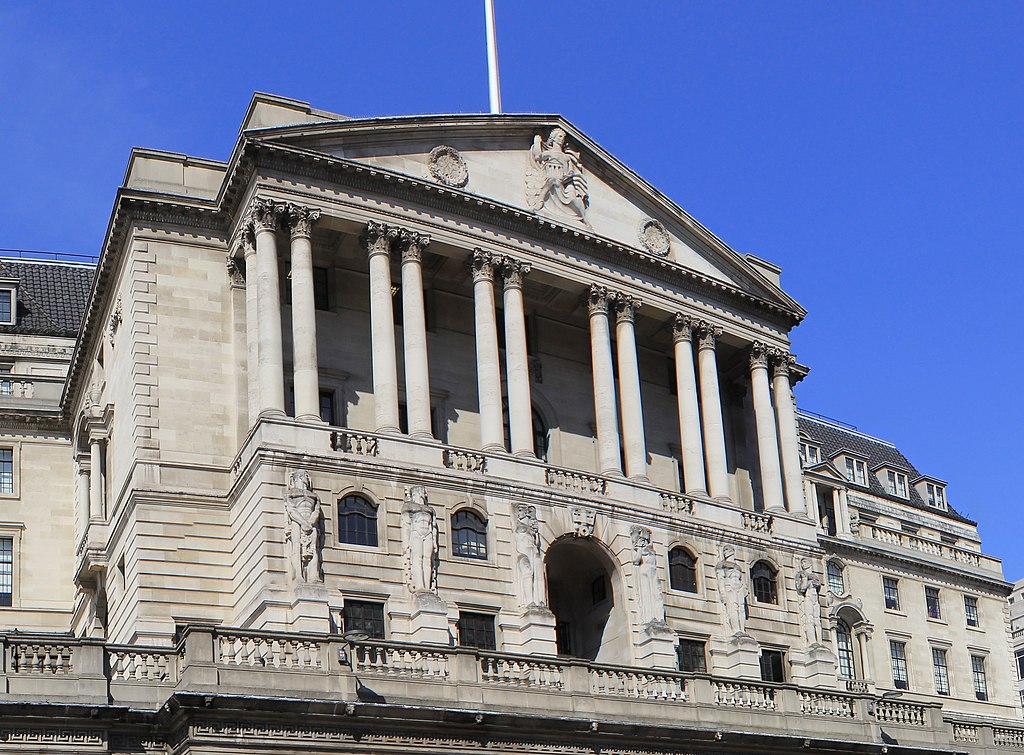James Quinn, founder of GB Home Surveys, looks at the measures the Bank of England has taken to tame inflation and its effect on the property market.
It is undeniable that the last 12 months have been incredibly difficult for families and businesses across the UK. From soaring energy food prices brought by the ongoing conflict in Ukraine, to the aftereffects of the UK’s departure from the European Union, not to mention former Prime Minister Liz Truss’ disastrous mini-budget, many recent events have spawned significant volatility in the national economy.
This instability has, in turn, caused inflation to shoot up considerably, and it currently stands at approximately 10%. As such, on Thursday 2nd February, the Bank of England announced that it was raising its interest rate by 0.5 percentage points to reach 4%, explaining that this was the best solution for bringing inflation back under control.
While the increase will likely be welcomed by savers, who will experience a healthy boost to their bank balance as a result, it means others will face higher borrowing costs, making an already challenging financial situation even harder for many people.
With economists forecasting that rates will increase further in 2023 – with a potential rise set to be made on 23rd March – it is understandable why many are concerned about the potential impact that high-interest rates will have on the UK’s property market. So far, however, the market has proven itself to be far more buoyant than many had expected it to be.
Get in touch with us today to speak with the UK’s Best Contractor Mortgage Broker.
Confidence and competition
When the BOE was forced to hike interest rates to 3.5% in the latter stages of 2022, this naturally fed through to mortgage rates as well, making it considerably harder for first-time buyers to secure the funds needed to purchase a home. While the situation was already gloomy for borrowers at this point, Liz Truss’ now infamous mini-budget made things even worse, ramping the level of volatility up to unexpected new heights.
In the wake of the mini-budget, mortgage providers pulled nearly 1,000 products from sale, leading to a significant rise in the cost of a mortgage. Despite this, in the early stages of 2023, it appears that inflation may now have peaked, which is helping to build confidence in the financial markets.
This is highly encouraging for the mortgage market. Confidence means lenders are willing to lend, and borrowers have access to the products that they need as a result. Considering the hole that the mini budget left in lenders’ mortgage books, it is surprisingly positive that lenders are now lending on fixed-rate mortgages below the BoE base rate for the first time in a long time. With more and more lenders starting to do this all the time, a healthy level of competition has resumed in the market, which is advantageous for borrowers who have a wide range of products to choose from.
Property prices remain high
In addition to the signs of positive activity for the benefit of prospective buyers, high-interest rates are also proving advantageous to many homeowners.
The UK property market has long been marked by supply and demand issues, with the number of people looking to get on or move up the housing ladder far outstripping the number of homes available.
This has already kept property prices high and, as of November 2022, the average house price in the UK stands at £294,910, which is a 10.3% rise from the previous year. With interest rates now having risen to 4% as well, it is unlikely that there will be a significant drop in house prices or value any time soon – particularly with experts predicting a lower peak in the BOE rate at 4.5%.
While average house prices have come down a little, they have not fallen as far as many had first anticipated they would. In fact, in some parts of the country, such as the East Midlands and the North West, prices have actually risen slightly. With supply and demand issues persisting – given that the UK is not building homes quickly enough – and interest rates proving better than expected, house prices may not actually decrease by as much as some are predicting.
Get in touch with us today to speak with a specialist Contractor Mortgage Advisor.
Things are looking up
While inflation remains high, the BOE is anticipating that it will fall over the course of 2023, as wholesale energy prices continue to drop. As such, the rate of inflation is not likely to reach the level that many had feared it would. This is not only positive news for businesses and households who have been hit by hefty bills and day-to-day expenses in recent months, but also for the stability of the UK’s property market.
Given the renewed confidence in the financial markets, the healthy level of competition in the mortgage market, and the fact that house prices remain steady across the country, the outlook for the property market is fundamentally positive despite rising interest rates, which is itself a positive signal for the UK’s economy as a whole.
By JAMES QUINN
Source: Property Reporter


